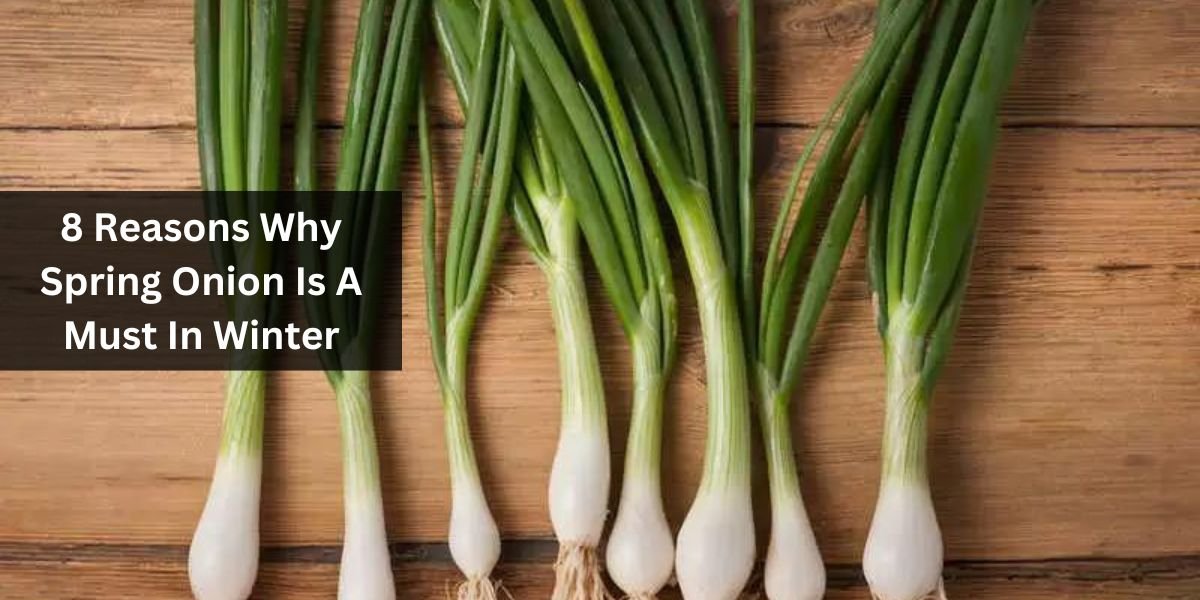Winter brings along a myriad of vegetables, among which spring onions stand out. These slender greens not only add a delightful crunch to dishes but also pack a punch in terms of health benefits. Let’s explore eight reasons why incorporating spring onions into your winter diet is an excellent choice.
1. Rich in Nutrients
Spring onions, also known as scallions, offer a spectrum of essential nutrients like vitamins A, C, and K. Additionally, they contain minerals such as potassium and folate, essential for maintaining overall well-being.
2. Boosts Immunity
During the chilly winter months, our immune systems need extra support. Spring onions possess immune-boosting properties, thanks to their high vitamin C content, aiding in strengthening the body’s defense mechanisms against illnesses.
3. Supports Digestive Health
The presence of fiber in spring onions facilitates good digestion. Including these in your meals may promote healthy gut bacteria and alleviate digestive discomfort, common during the winter season.
4. Low in Calories
For those watching their calorie intake, spring onions serve as a fantastic addition. They are low in calories but high in flavor, making them an ideal choice for weight-watchers.
5. Adds Flavor to Dishes
The mild yet distinct flavor of spring onions can transform ordinary dishes into culinary delights. Whether used raw in salads or as a garnish in soups, their versatile taste enhances various recipes.
6. Antioxidant Properties
Antioxidants present in spring onions may assist in combating free radicals, thereby potentially reducing the risk of chronic diseases. This antioxidant content makes them an essential part of a healthy diet.
7. Promotes Heart Health
Studies suggest that the sulfur compounds in spring onions may contribute to lowering cholesterol levels. Incorporating these into your diet could potentially support heart health, a concern often heightened in the winter.
8. Versatile in Culinary Use
One of the best aspects of spring onions is their versatility. From stir-fries to omelets and dips, they complement an array of dishes, adding both taste and nutritional value.
In conclusion, the advantages of including spring onions in your winter diet are plentiful. Not only do they enhance the flavor profile of your meals, but they also contribute significantly to your overall health.
Conclusion
The crisp, flavorful nature of spring onions makes them a must-have ingredient in your winter meals. With their diverse health benefits and culinary adaptability, these greens undoubtedly earn their place in your seasonal dishes.
FAQs:
Q1: Can I freeze spring onions?
A1: Yes, spring onions can be frozen for later use. Chop them into pieces and store them in an airtight container or freezer bag.
Q2: Are spring onions and scallions the same?
A2: Yes, spring onions and scallions are often used interchangeably to refer to the same vegetable.
Q3: How can I incorporate spring onions in dishes?
A3: Spring onions work well in salads, soups, stir-fries, and as a garnish for various savory dishes.
Q4: Are there any allergy concerns with spring onions?
A4: Individuals with onion allergies might experience similar reactions to spring onions. It’s advisable to consult a healthcare professional if allergic.



